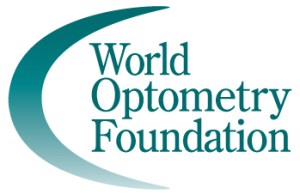
The World Council of Optometry (WCO) offers two different types of grants that are generously supported by its charitable arm, the World Optometry Foundation.
The WCO Grant Program (formerly known as the Fellowship Program) is intended to support the vision and mission of WCO by funding projects and initiatives which lead towards the advancement of the role of optometry and its participation in eye and vision care within health care systems. For examples of past grant program projects, click here.
Disclaimer: This grant program aims to foster the growth and development of optometry as a profession by supporting initiatives that demonstrate a clear vision, sound methodology, and potential for long-term impact. Personal qualifications and credentials will be considered within the context of the proposed project’s feasibility, but these will not be the sole determinant in the selection process. The selection committee acknowledges the diverse backgrounds, experiences , and perspectives of applicants, and recognizes that groundbreaking contributions can come from various sources.
Grants
General Grants:
- Innovative projects resulting in long-term sustainable results which improve eye care delivery and develop the role of optometry worldwide. Areas of priority for WCO Grant Program projects are:
- Education
- Advocacy for advancement of optometry and development of eye care
- Public health
- Standards, policy, and legislation
- Also encouraged are programs that focus in integrating optometry into universal health plans on the country level and integrated patient-centered eyecare.
- Applications for research projects may be eligible for funding if the project outcomes will add to the development of evidence of eye care need and the role of optometry. As guidance, these could include:
- Epidemiology, including the prevalence, distribution and determinants of vision and eye conditions
- Analysis of newly initiated or alternate delivery or care models and pathways
- Increasing health literacy related to eye care, and/or the role of optometry or other areas of public health
- Support for project costs may include travel costs that are necessary to support the outcomes.
- The typical maximum amount of funding is $2,000US, although for projects considered by the WCO Grant Committee as a high priority the funding may be more. In the case of high priority projects as determined by the Grant Committee, multi-year projects may be considered.
- Projects which may lead to other sources of funding to develop long-term sustainability are encouraged.
Education Mentor Grants:
- Will match faculty/instructors from established schools of optometry with faculty from WCO member schools that are less established or in development.
- Example topic areas may include faculty development, student assessment, clinical teaching, curriculum development.
- Maximum funding amount is $5000 which includes transportation for the mentor to travel to the school to meet the faculty and jointly develop a plan to address the requests. The expectation is that this will be for a minimum of one week.
- The host school will be asked to contribute meals and accommodation for the mentor while in the country.
Criteria
- The WCO Grant Program is a member benefit. Applicants must:
- Be employed by a WCO affiliate member or
- Belong to WCO country member organization or
- Be an individual WCO member
- To view a list of WCO members, click here.
- Successful grant applicants agree to submit a final report on their project to WCO. The outcomes of their grant may be disseminated in the form of a news report through the WCO e-news, social media, and website, WCO regional news and social media, local optometry news and social media, poster, or paper presentation at a WCO conference or other conference with refereed abstract submission, or publication in a refereed journal if the project lends itself to this form of publication.
Frequently Asked Questions
Do I need to be a WCO member to qualify for a grant?
In order to qualify for the WCO Grant Program, you must either be an individual WCO member, be employed by a WCO affiliate member, or belong to a WCO country member organization.
What is the Fellowship Program?
Prior to being renamed in August 2022, the WCO Grant Program was formerly known as the Fellowship Program. The WCO Grant Program continues to fund innovative projects that support the vision and mission of WCO.
What is the structure of the program?
This is not a structured grant program, but rather, projects are developed and led by the member applicant.
How long is the program?
The length is decided by the applicant; however, the majority of projects are completed in under a year.
Aside from a final report, what will I need to do?
Other tasks include completing your project plan and the application, including a budget. The fellowship funds are sent upon approval of the final report.
When is the application due? Is there a deadline?
Applications are open year-round.
What is the highest amount awarded?
The typical maximum amount of funding is $2,000 US, although for projects considered by the WCO Grant Committee as a high priority the funding may be more. In the case of high priority projects as determined by the Grant Committee, multi-year projects may be considered.
Application Process
- Complete the application form below.
- Additional information may be requested by the WCO Grant Program Committee and/or the WCO.
- The WCO Grant Program Committee will review applications and notify the Executive Committee of the successful candidates. The final decision for grants will be made by the Grant Program Committee.
- All applicants will be informed of the outcome of their application by the WCO.
- All successful applicants will be required to provide a written report and acknowledge WCO/WOF in all publications or publicity regarding the project prior to the funds being released.
- Please contact us with any questions.
Grant Program Application Form
Click here to download the WCO Grant Program Budget Application Form.

